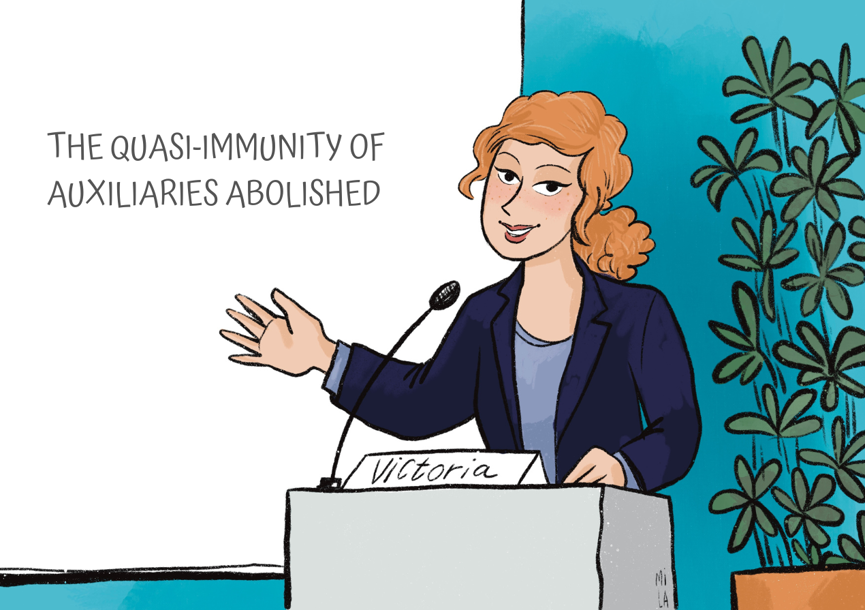- Corporate Law and M&A , Commercial and Economic Law , Liability and Insurance
- Quasi-immunity of auxiliaries , Quasi-immunity , auxiliaries , director , employee , (sub)contractor , perform the agreement , immunity of the auxiliary , personally liable , defective performance of the contract , held liable for damages , personal liability of the auxiliary , extra-contractual error , tort , consultant , contractor
In the new Civil Code, the abolition of quasi-immunity of auxiliaries will have major implications for the civil liability of directors, employees, and subcontractors.

If legal rules relating to a few influencers are introduced or modified, then the newspapers are filled with it. If, on the other hand, the liability regime of directors, employees, and subcontractors is fundamentally changed, then you have to look long and hard to find an article about it in the press.
Hence, the way this issue is being handled in the press somewhat frustrates the lawyer in me.
I admit, the abolition of the quasi-immunity of auxiliaries does not sound particularly sexy yet its relevance is all the greater. Trust me and take a moment to read to the end. I promise you, your efforts and patience will be rewarded.
1. What did quasi-immunity of the auxiliary mean?
First of all, what exactly did this quasi-immunity of the auxiliary that was recently abolished mean?
Suppose company A has an agreement with party B. For the effective performance of this agreement, company A calls upon a so-called auxiliary, i.e. a person (X) who will effectively perform the agreement for this company, e.g. the director of company A. If the director of company A (X) makes an error in the performance of the agreement with party B, this director is today protected by the immunity of the auxiliary: if party B suffers damage due to the error of the director (X), party B cannot, as a rule, hold the director of company A personally liable.
Only in very exceptional cases (which is why we also talk about the quasi-immunity of the auxiliary and not the immunity of the auxiliary) can party B hold the director personally liable; namely (1) in case the director's fault also constitutes a crime or (2) if the director's fault leads to a different damage than the one resulting from the defective performance of the contract. However, both situations are exceptional.
In short, the quasi-immunity of the auxiliary ensures that the person effectively performing the contract for a company cannot be held liable for damages by the company's counterparty.
This protection was simply abolished with the introduction of the new Book6 of the Civil Code. It is scheduled to come into force on 1 January 2025 and will also apply to contracts already concluded.
2. Only for tort liability
Just for clarity and (partial) reassurance, not every error made by the auxiliary in the context of the performance of a contract will lead to the personal liability of the auxiliary for this error.
If the error concerns only a contractual shortcoming, the auxiliary will not be personally liable to the other party; only if it concerns an extra-contractual error (a 'tort'), the performing agent will be directly liable.
A small example: a construction company's mason who builds a garden wall with bricks in the wrong color (contractual fault) will not be able to be sued personally by the other party; the same mason who accidentally damages the garden wall with a crane will. Indeed, the former qualifies merely as an error in the context of the performance of the contract; the latter is also an error independent of any contract.
Anyway, the main categories of persons affected by the abolition of the quasi-immunity of the auxiliary are the most common ‘auxiliaries’; i.e. directors of companies, employees, and (sub)contractors (which also includes, for example, consultants).
In subsequent posts, we will elaborate on the exact impact on each of these categories and provide tips on how you, as a director, can protect yourself, your employees, and contractors/consultants from this new ground of liability.
Do not hesitate to contact our specialists should you have questions about this item: +32 (0)2 747 40 07 or info@seeds.law.





